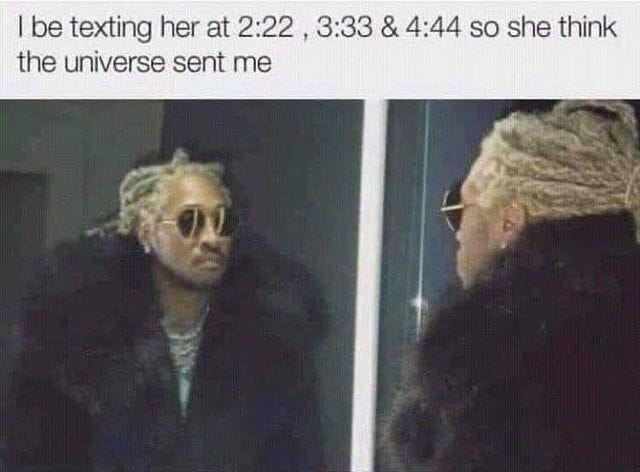Magical thinking
11:11
It was the beginning of 2022 when my youngest sister, H, and I began screenshotting the number ‘11:11’. We didn’t catch it on our phones every day, but when we did, we would take a screenshot and send it to the other. It was a sign that we were on the right track, evidence of our alignment with something bigger. By July, these private texts had escalated to dedicated albums. We would capture and save the evidence, only occasionally sending it on.
It is perhaps ironic that of my parents’ three daughters, the two caught in this relationship with angel numbers, were the two predisposed to negative thinking. The two daughters who required therapists and the most frequent council. The two who could find the good in a moment, but had to work harder for it. And this year, we were working. We were working harder than we ever had. It was our year, we decided, and as far as our screenshots were concerned, it was happening.
Magical thinking is the belief that one’s actions, thoughts, words or use of particular symbols can influence the events that play out in their life. A link is created between our inner world and the outside one. Over the last decade, magical thinking – from astrology and numerology to tarot cards and mediumship – has hit the mainstream. The mystical services market is now worth more than US$2.1 billion. Co-Star, the popular astrology app, has been downloaded more than 26 million times. And, according to the trend forecaster WGSN, 63 percent of Millennials and 62 percent of Gen Z believe their zodiac sign accurately depicts their personality.
Many articles argue that our interest in these mystical services has increased because of our environment. Studies have shown that we consult astrology during periods of significant stress, and as we live in a fast-paced world with a precarious economic climate it does feel like we’ve collectively hit that point. But I also wonder whether our dwindling faith in religion is partly responsible. As many of us have turned our backs on organised religion, we have turned toward magic to feel like we’re connected to something bigger. Regardless of whether we really believe it to be true or not.
In a 1982 study, the psychologist Graham Tyson found that people turned to astrology in periods of stress, but not necessarily because they believed it to be accurate. “Under conditions of high stress,” he wrote, “the individual is prepared to use astrology as a coping device even though under low-stress conditions he does not believe in it.” This finding seems to track. We only tend to notice that Mercury is in retrograde on a bad day. We have our tarot cards read when facing a big decision, but rarely when we’re in a good place.
This year, the conversation has escalated from angel numbers to horoscopes, mainly because H is a graphic designer at a magazine. Each month, she designs the horoscope pages and sends them on to her two older sisters. We read them with a sense of duty and often laugh at the fact someone’s mentions ‘role play’. Magical thinking, after all, has become an act that is as much about pleasure and delusion as it is about hope and introspection. In the same way reality television is a sociological study or escapist act, depending on the way one prefers to justify it to themselves. You can find meaning there if you look hard enough, but it is also just fun. Recently, H sent me a meme of a man in a fur coat and sunglasses, seductively staring into a bathroom mirror. Above the image were the words: ‘I be texting her at 2:22, 3:33 and 4:44 so she think the universe sent me.’ The joke was on us, it seemed, but at least we were in on it.
Recommendations:
For the Barbie fans out there, if you didn’t catch this New York Times Magazine profile on Greta Gerwig, it’s absolutely worth a read this weekend. As well as this Vulture article on Mark Ronson who produced the Barbie soundtrack.
Emily Ratajkowski’s recent podcast episode with psychotherapist Esther Perel was fascinating. Perel, who is known for her commentary around love and romantic relationships, explained that she is interested in ‘the erotic’. She explained: “I am interested in what keeps us feeling alive, because not being dead doesn’t mean that we feel alive. It just means we are surviving.”
Finally, I was initially disappointed and then pleasantly surprised with the second season of The Bear. And I adored this article from The Cut objectifying Jeremy Allen White after he was spotted on a run in Los Angeles this week. The headline game was strong.



